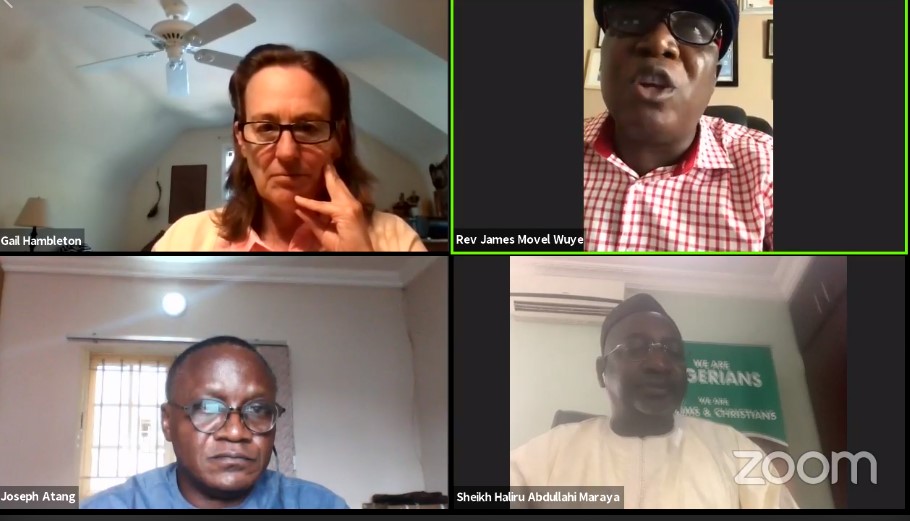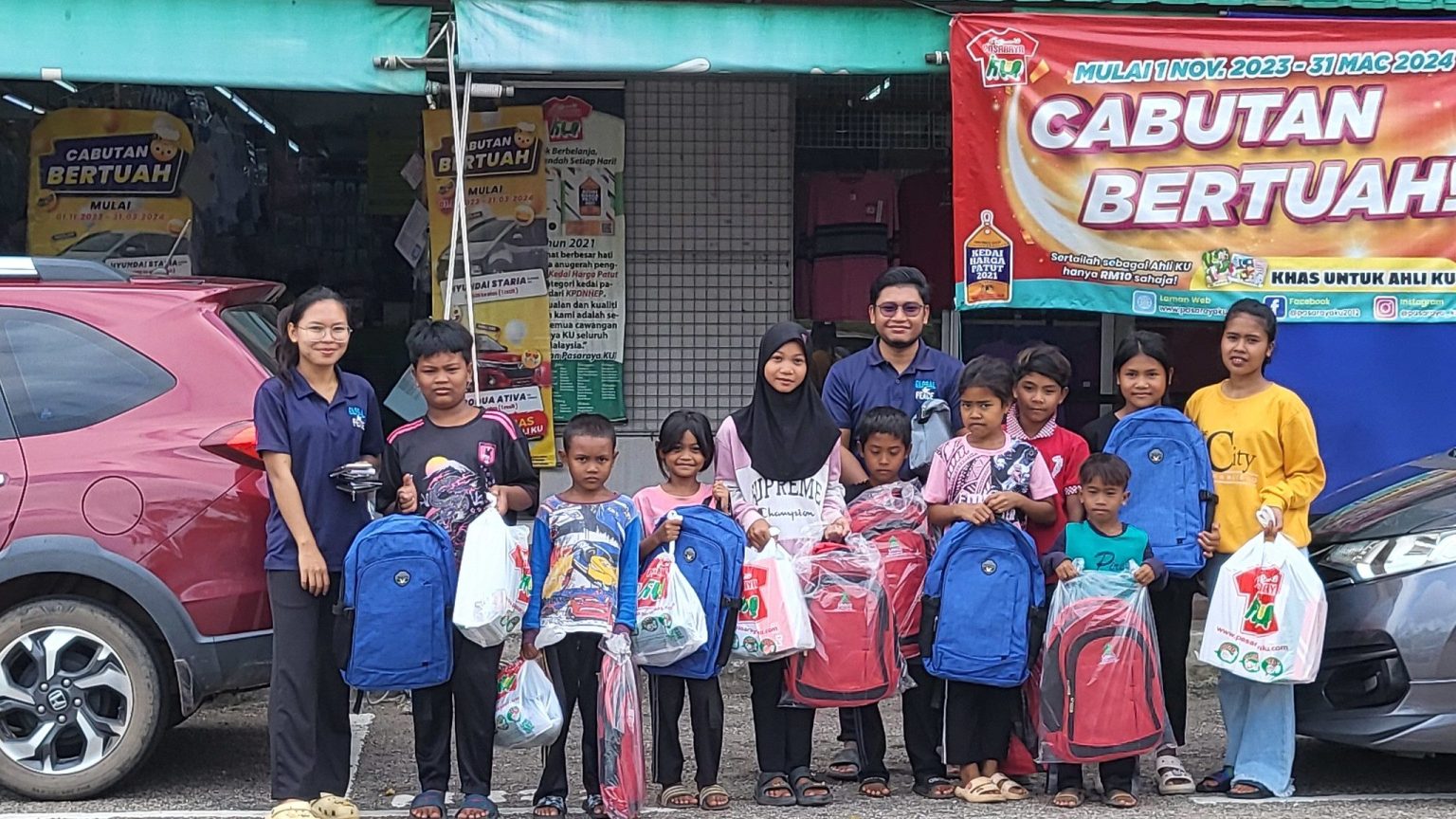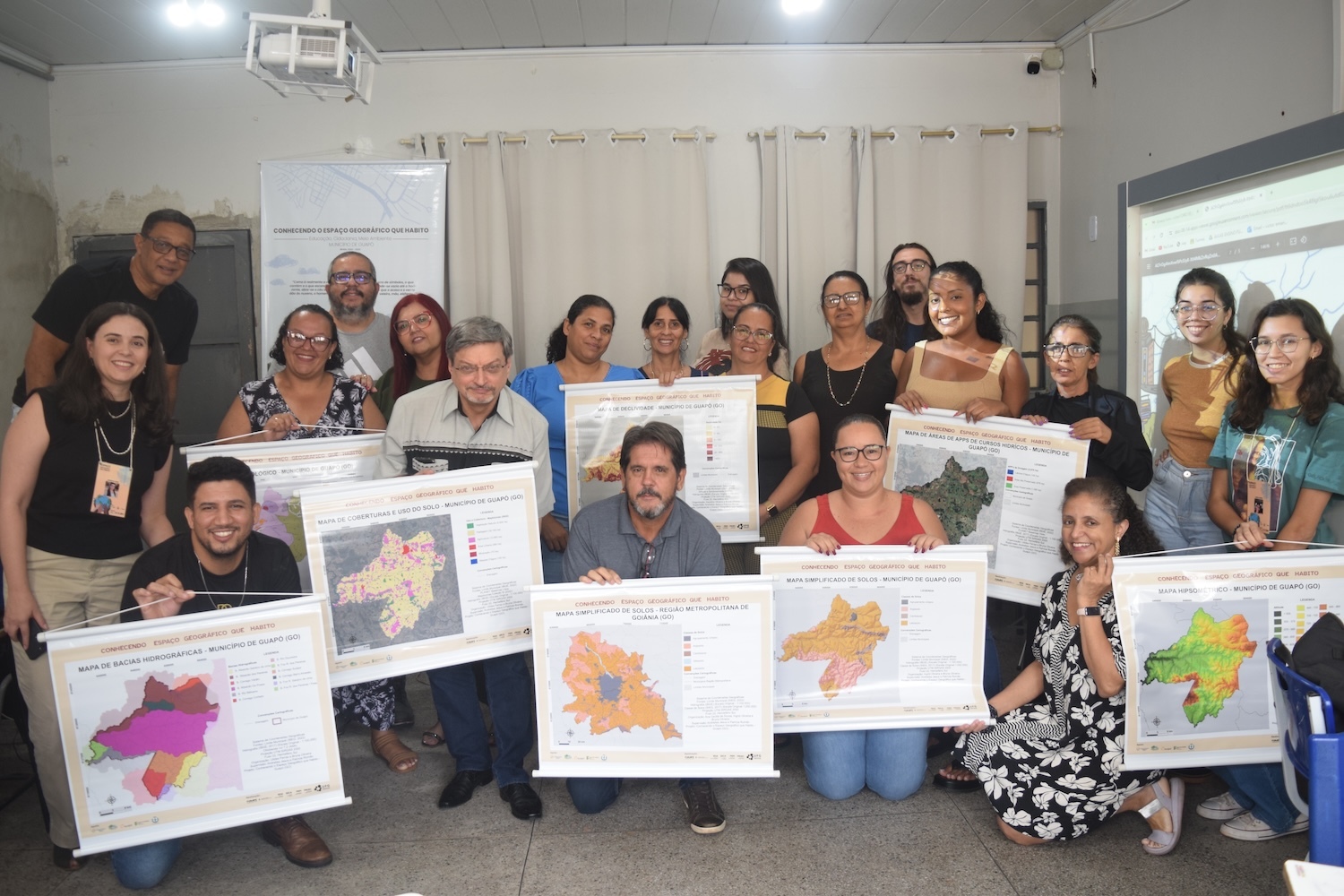June 30, 2020, NIGERIA—Global Peace Foundation (GPF) Nigeria conducted an online webinar attracting hundreds of viewers from across Nigeria and the world on the topic of “Preventing Violent Extremism and Mitigating Identity-Based Conflict in a Multi-Ethnic and Multi-Religious Society.”
GPF Nigeria Director, Rev. John Joseph Hayab, co-led the online forum with Mr. Joseph Atang, the Country Expert for King Abdullah bin Abdulaziz International Centre for Interreligious and Intercultural Dialogue (KAICIID). The main speakers in the webinar included two dynamic leaders from the Christian and Muslim communities in Nigeria: Pastor James Movel Wuye and Imam Nurayn Mohammed Ashafa who are Co-Executives Directors of Interfaith Mediation Center Kaduna and are also known to be the famous Pastor and the Imam of Kaduna state, Nigeria.
In the last twelve years, Nigeria has experienced an increased prevalence of violent extremism spread across the country, leading to heavy casualties and property damage. This tragedy and undermined collective efforts towards maintaining peace and security, fostering sustainable development, protecting human rights, promoting the rule of law, and taking humanitarian action. Violent extremist groups are contributing significantly to the cycle of insecurity and armed conflict affecting the country and the world.

Pastor Wuye listed various types of extremism: Racial, cultural, identity, political, and religious extremism. He stated that according to Christianity, all human beings are one, yet people use these types of classifications to commit atrocities like violence against one’s own neighbor. However, Pastor Wuye also shared that violent extremism can be solved through the adoption and proper implementation of the United Nation’s Resolution 1325, which provided more opportunity for women to participate in the peacebuilding process as essential leaders in the home and greater community. UN Resolution 2250 also allowed active youth engagement in the conflict process, indicating that youth should be engaged in the prevention, protection, disengagement, and integration process of peace work. He added that religious leaders, farmers, and teachers should all be involved in the peacebuilding process to end violent extremism in Northern Nigeria.
Imam Nuraini Ashafa concurred and urged stakeholders and partners in peacebuilding to first identify the key issues that gave birth to extremism. He shared three major pillars of conflict: resources, philosophy, and values. “I have seven identities,” said Imam Ashafa, “I am a man, Yoruba, Muslim, From Kwara State, From North Central, Middle Belter and a Northerner. By denying me my identity, it would be denying me the lifeline of my existence.” He added that in the Islamic faith, it is an opportunity to connect and through the only two identities existing in Islam which are faith and humanity.
Imam Ashafa also spoke on the factors that trigger identity-based conflict: fear and rumors. These factors accelerate identity-based violence which has been sustained through religious and cultural differences and government policy.
“The Holy Qur’an mentioned that ‘we created you from one male and one female, made you into nations,’” shared Imam Ashafa, “The most pious among you is not considered according to the color of your skin or the language you speak but by who is the most God-fearing one.” He added that GPF Nigeria touts a particular identity which is that all humanity is One Family Under God.
Mr. Joseph Atang highlighted that solutions to violent extremism can be found in the positive transformation of youth. The motivation for violent extremism can be found in the abuse of many areas: Nationalism, political zones, ethnicity, poor governance, political marginalization, economic power, sectionalism, non-provision of infrastructural amenities, lack of opportunity for youth, personal gain, protection and safety, property, personal empowerment, religious reward, and misapplication of religion. Youth, with their passion and energy, while also the most vulnerable to indoctrination, also have the most power to put conflict resolution into action.
The webinar included a robust Q&A session involving the speakers and moderators which addressed practical applications and the role of actors like the media, religious and political leaders, and women and youth populations.
Learn more about models of peacebuilding in Nigeria.



